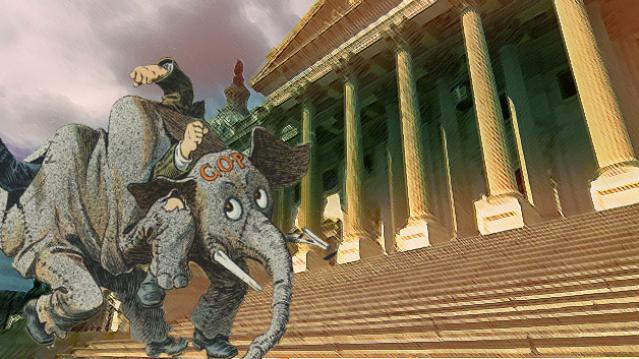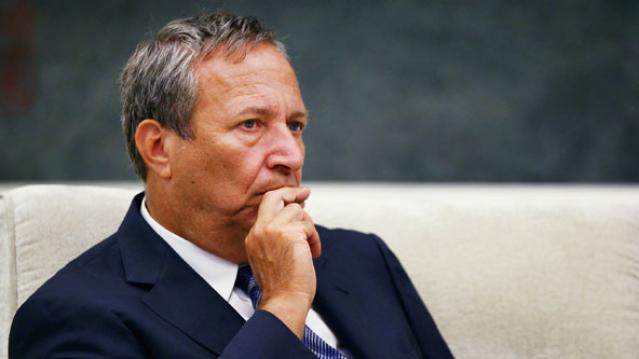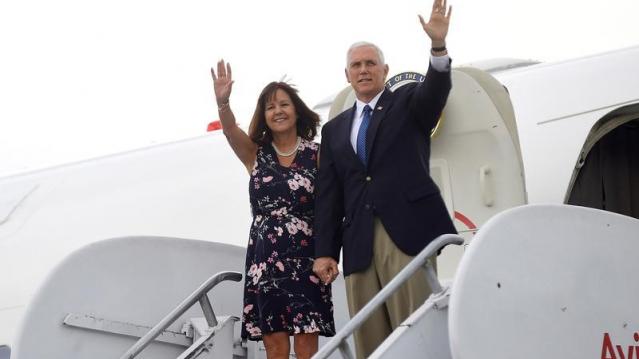The 2016 Presidential Debates Could Become a Slugfest

Few could doubt the impact of nationally televised presidential debates after Republican Mitt Romney set President Obama back on his heels in their first encounter in October 2012.
Romney was articulate and aggressive while Obama appeared frazzled and very much off his game. Romney’s commanding performance helped the former Massachusetts governor briefly energize his floundering campaign and regain its momentum.
Related: Clinton Plays the Gender Card as a Campaign Strategy -
Moreover, with home viewership topping 67 million, the debate -- moderated by Jim Lehrer, the former news anchor for the PBS News Hour – broke a 32-year gross viewership record dating back to the first debate between Democratic President Jimmy Carter and Republican challenger Ronald Reagan in 1980.
Yet amid dramatic changes in political campaign tactics and fundraising and the way Americans consume the news, these televised general election presidential debates actually are suffering from diminished reach.
A new study issued on Wednesday by the Annenberg Public Policy Center at the University of Pennsylvania seemed to compare presidential debates to TV entertainment. Their assessment: the more than two-decade old debate format is to blame for the low viewership among millennials, although baby boomer viewers have increased.
Related: Why Marco Rubio Might Just Beat Hillary Clinton
So what to do? In an era when large audiences pay far more attention to “Game of Thrones,” “House of Cards,” “Master Chef” and “So You Think You Can Dance” than to increasingly lengthy presidential campaign seasons, how can the political parties and the National Presidential Debate Commission jazz up the debates to attract and keep a wider audience?
The Annenberg panel, of course, stops well short of recommending the equivalent of no-holds barred political mudwrestling to heighten audience engagement and sustained interest. The goal, the group says, is to expand and enrich debate content and produce a better informed group of voters.
To that end, the advisory group appears anxious to get rid of the moderator or middle man as much as possible and allow the two candidates to set the agenda and duke it out. They want to get rid of the one or more prominent journalists who set the ground rules and determine the pace and course of the evening’s discussion.
Related: GOP Prunes the 2016 Primary Debates Down to Nine
If, for example, Hillary Clinton were to slam, say, Marco Rubio in a debate, Rubio shouldn’t have to wait patiently for his opportunity to reply but should be allowed to jump in with a rejoinder. Think of it as the resurrection of CNN’s Crossfire.
To add a smidgeon of Jeopardy to the proceedings, each candidate would have a total of 45 minutes to spend to make their case or defend it.
While the candidates would have plenty of opportunity to get their political messages across, they would also have to respond quickly to attacks. A well-scripted candidate wouldn’t necessarily do well in that setting, and the possibility of “oops” moments would be increased. Welcome to reality TV, Beltway style.
Related: The GOP Hunger Games: Who Will Make the Debate Cut?
Ah….but dead air is not an option, so a filibuster is off the table. No answer, rebuttal or question could exceed three minutes, according to the panel. When a candidate runs out of total time, he or she has exhausted the right to speak. Remaining time at the end of the moderator-posed topics can be used for a closing statement.
The recommendations are advisory only and it will be up to the presidential debate commission and the national parties to iron out the final ground rules next year.
Quote of the Day - October 16, 2017
Speaking at a cabinet meeting on Monday, President Trump said:
"Obamacare is finished, it's dead, it's gone ... There is no such thing as Obamacare anymore."
Click here for the video.
Poll: Trump Tax Cuts Favor the Wealthy; Deficit Should Be Higher Priority
Trump and the GOP still have work to do if they want to convince Americans that their tax plan won’t mostly help the rich. A CBS News Nation Tracker poll released Sunday finds that 58 percent say the tax reforms being discussed favor the wealthy, while 19 percent say it treats everyone equally and 18 percent say it favors the middle class.
The poll also found that 39 percent say that cutting the deficit should be a priority, even if it means taxes stay the same. About half as many people said cutting taxes should be prioritized even if the deficit rises.
The poll, conducted by YouGov, surveyed 2,371 U.S. adults between October 11 and 13. Its margin of error is 2.5 percent.
Coporate Tax Cut Could Be Phased In
House tax writers (at least some of them) are worried that slashing the corporate tax rate found will push the deficit higher in a hurry – an analysis by the Tax Policy Center found that cutting the rate to the stated goal of 20 percent would cost $2 trillion over a decade. One way to soften the fiscal blow would be to phase in the reduction over three to five years. House Republicans say such an approach would reduce the size of the lost revenue by half.
Larry Summers: GOP Tax Claims Are 'Made-Up'

Former U.S. Treasury Secretary Lawrence Summers isn't happy with the Republican tax plan, and it's not just because he has a different set of ideas as a Democrat. More fundamentally, he says Republicans are making false claims: “When you have -- and I hate to be in a position of using this word about our government -- when you have senior economic officials making claims that are made-up ... it’s very hard to have a dialogue, and compromise, and get to a good place.”
Summers is also worried about the effects of a tax cut for the rich during a time of considerable social turmoil: “There’s a lot of unhappiness and anger out there … It’s really hard to see why focusing a corporate tax cut on those at the very high-end is going to do much to assuage that anger.”
How Much Did Mike Pence’s NFL Walkout Cost Taxpayers?

Vice President Mike Pence’s decision to attend an NFL game between the Indianapolis Colts and San Francisco 49ers yesterday and then leave after some 49ers players kneeled during the national anthem was quickly criticized by some as a planned piece of political theater — and a somewhat expensive one at that. “After all the scandals involving unnecessarily expensive travel by cabinet secretaries, how much taxpayer money was wasted on this stunt?” Rep. Adam Schiff (D-CA) tweeted Sunday afternoon.
The answer, CNN reports, is about $242,500: "According to the Air Force, flying a C-32, the model of plane used for Air Force 2, for one hour costs about $30,000. Pence's flight from Las Vegas to Indianapolis Saturday took about three hours and 20 minutes, so it cost about $100,000. Pence then flew from Indianapolis to Los Angeles on Sunday, which took about four hours and 45 minutes, costing about $142,500."
President Trump defended Pence’s trip, tweeting that it had been “long planned.” CNN also reports that some of the costs of Pence's flight from Indianapolis to Los Angeles will be paid back by the Republican National Committee because the vice president is attending a political event there.
